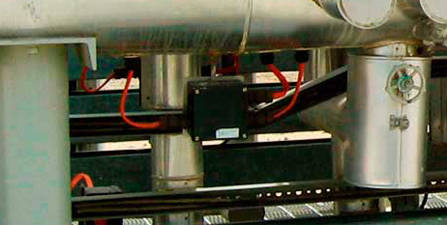
Mechanical and Process Equipment Diagnostics is applied to ensure:
Equipment technical condition;
NDT testing of welded joints and parent metal for external and internal defects in welding;
Residual metal thickness;
Mechanical properties of metal;
Life prediction of equipment;
Recommendations and activity plan to ensure safe operation of the equipment;
Survey reports on industrial safety of the equipment (if required).
Pipeline Diagnostics is applied to ensure:
Assess technical condition of process and auxiliary pipelines and their buried and above-ground sections using advanced NDT methods;
Testing of welded joints for external and internal defects in welding;
Detection non-standard and non-OEM elements in pipeline construction;
Inspection the foundations, suspensions and supports;
Testing of vibration level in the pipes of the trunk line and booster pumps;
Detection pipeline corrosion level;
Assessment of pipeline residual life using the test results;
Survey report and recommendation.
Types of Control and Diagnostics:
Radiation Safety Test (X-Ray);
Ultrasonic:
examination;
wall thickness test.
Visual and Dimensional Inspection;
Vibrodiagnostic Control;
Magnetic Test;
Dye Penetration Test.
NDT Testing for:
Gas supply systems (gas distribution):
external steel gas pipelines;
internal steel gas pipelines.);
Oil & Gas Equipment:
gas and oil pumping equipment;
gas and oil product pipelines;
Equipment at Explosive, Flammable & Hazardous Facilities:
equipment at chemical, petrochemical and oil refining facilities;
explosive and toxic substance storage tanks;
process pipelines, steam and hot water pipelines.
NDT testing and technical diagnostics prevent breakdown and accidents; reduce downtime and operational expenses, increase life time and overhaul life, and cut the duration and costs of repair works.





